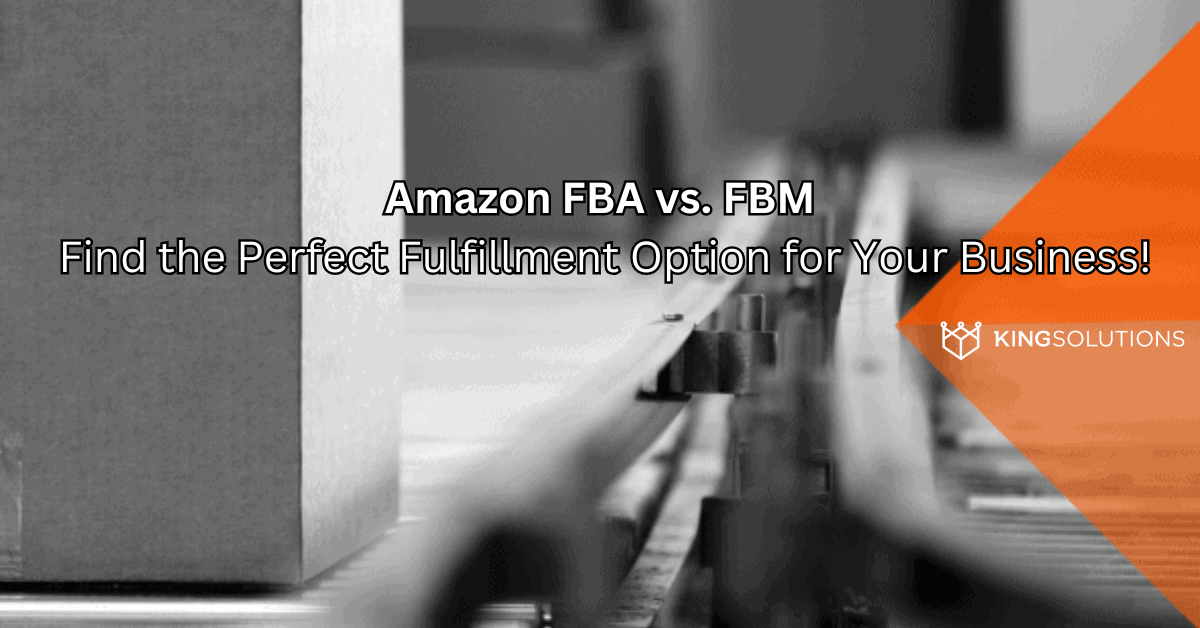FBA vs FBM: Which Fulfillment Option is Right for Your Amazon Business?
As the e-commerce landscape evolves, Amazon remains the leading platform for businesses aiming to expand their online presence. With its vast global reach and the power of the Prime badge, Amazon offers unparalleled opportunities for merchants worldwide. However, the logistics of fulfillment can be complex, especially when deciding between Fulfillment By Amazon (FBA) and Fulfillment By Merchant (FBM). This post will explore the key differences between FBA vs FBM in terms of fees, customer service, and returns, helping you determine which option is the best for your Amazon store.
What is FBA and How Does It Work?
Fulfillment By Amazon (FBA) allows sellers to store their products in Amazon’s fulfillment centers. When customers place orders, Amazon handles the entire process, from picking and packing to shipping. This service also includes Amazon’s Prime shipping eligibility, offering one-day shipping for Prime members. With FBA, merchants can leverage Amazon’s extensive network, streamlining fulfillment and taking advantage of Amazon’s customer service.
FBA stands for using Amazon’s advanced fulfillment infrastructure, which means you don’t have to manage shipping or returns yourself. Sellers simply send their inventory to Amazon’s fulfillment centers, and Amazon takes care of the rest.
How does Amazon FBA work?
- Merchant signs up for FBA: Sellers enroll in Amazon FBA and send their inventory to Amazon’s fulfillment centers.
- Inventory is stored in Amazon’s centers: Products are stored and managed in Amazon’s warehouses, ready for fulfillment.
- Amazon fulfills orders: Amazon picks, packs, and ships the orders, often with Prime shipping options.
- Merchant manages product listings and pricing: While Amazon handles fulfillment, sellers retain control over product listings and pricing.
What is FBM and How Does It Work?
Fulfillment By Merchant (FBM) is the alternative to FBA, where merchants are responsible for storing, packing, and shipping products to customers. Sellers who choose FBM fulfillment options manage all logistics independently but gain more control over inventory and shipping processes. FBM services can be especially beneficial for businesses dealing with large or niche products that are less suited for Amazon’s FBA infrastructure.
How does Amazon FBM work?
- Merchant stores inventory and manages listings: Sellers receive and organize their inventory, creating listings on Amazon.
- Customer places an order: Sellers handle the picking, packing, and shipping of the order to the customer directly.
- Merchant handles customer service and returns: Sellers are responsible for post-sale support, returns, and customer inquiries.

FBA vs FBM: Key Differences
When deciding between Amazon FBA and FBM, several factors must be considered:
Fulfillment Process
- FBA automates fulfillment, leveraging Amazon’s infrastructure for streamlined processes.
- FBM provides more control, as the seller manages everything from storage to shipping.
Fees and Cost Structure
- FBA involves monthly storage and fulfillment fees based on product dimensions and storage time. You can use the FBA Fees Calculator to estimate your costs.
- FBM pricing allows more flexibility in cost management but requires more seller involvement.
Performance and Customer Experience
- FBA benefits from automated order processing and Prime eligibility but might lack personalized service.
- FBM allows more control over the customer experience, but it can require more effort to maintain high performance.
Customer Service
- Amazon FBA manages customer service, ensuring consistency and professional communication.
- Amazon FBM customer service is the seller’s responsibility, providing an opportunity to create a personalized experience but requiring more effort.
Return Management
- FBA handles returns, but the process is less customizable.
- FBM gives sellers more control over returns but requires additional resources for efficient handling.
FBA and FBM: Which is Right for Your Business?
The choice between Amazon FBA and FBM depends on your specific needs. If you want convenience and scalability with Prime benefits, FBA is an ideal option. However, if you prefer more control over your inventory, customer service, and cost structure, FBM may be the better fit. Additionally, combining FBA vs FBM with a third-party logistics provider (3PL) might offer a balanced solution, providing flexibility and cost-effectiveness across multiple sales channels.
At King Solutions, we specialize in FBA and FBM fulfillment, offering customized solutions tailored to your business needs. With our dedicated customer care and advanced technology, we ensure faster delivery times, accurate inventory management, and seamless integration with Amazon and other e-commerce platforms.
Other Great Resources to understand if FBM is right for you:
- Fulfillment By Amazon vs. Fulfillment By Merchant: What’s the Difference? – Shopify
- FBM vs. FBA: Which Is Better for Your Business? – BigCommerce
- How to Choose Between FBA and FBM – Jungle Scout
Ready to Scale Your E-commerce Business?
Contact us today to discuss how FBA vs FBM can impact your Amazon strategy and to explore fulfillment solutions designed for your business growth.








 Joel Rice
Joel Rice